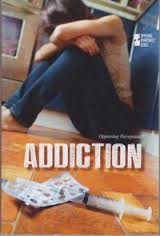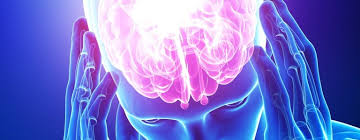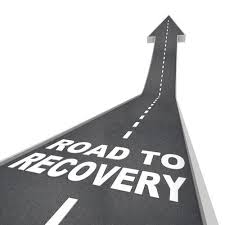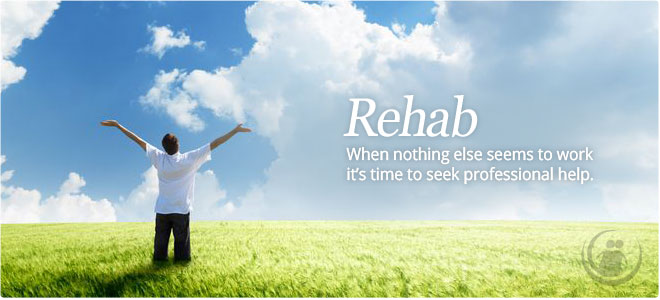Healing addicted brain from cocaine abuse
Healing addicted brain from cocaine abuse: Why is this necessary?

Healing addicted brain from cocaine abuse is not only essential for addiction recovery but also a must do if this scourge of addiction is to be eliminated from our societies.
The adverse effect of drug addiction in human health is increasingly becoming a global disaster yet very little is being done to bring this to a stop. Many of the illicit drugs have been licensed for consumption and both the various governments and the business enterprises are reaping the profit of death every year at the pronouncement of the annual returns. Our streets are equally saturated with all manner of illicit drugs to the satisfaction of our hopeless and jobless youths and teens. Families are broken because of the consistent abuse of drugs by their bread winners and the grief is overwhelmingly destroying the moral fabric of our societies. This article alone is not enough for me to address all the issues and complications associated with drug use and therefore, we are going to zero in on one segment of this wide topic. I therefore want to welcome you to the discussion bout healing the addicted brain from cocaine abuse. If this is your first time being on this link, I want to encourage you to stay on the link and receive healthy tips of healing addicted brain from cocaine abuse straight from the experts at AWAREmed Health and Wellness Resource Center. This is one of the best addiction recovery facilities with highly trained and qualified professionals of our time and they are up to the task if only you can schedule for an appointment with doctor Dalal Akoury MD, President and also the founder of the establishment.
Healing addicted brain from cocaine abuse: Cocaine users
Cocaine is one of the most dangerous opioids commonly used by many addicts to attain certain high feelings and for cocaine users, every high is often not enough even if the effect will cause them to pass out. This is so because these are stimulants which have greater effects on the brain thereby making each unit consumed a little less great to the intended user. Because of that they will continue to go back for another dose high intensity not withstanding in order to try and match their last high. According to the experts from AWAREmed Health and Wellness Resource Center, doctor Akoury is registering that the horribly tragic thing about that quest of using more and more of cocaine is that they will never reach those highs again meaning that every next high results in lower highs and higher lows. And that now brings us to the focus of our discussion about healing the addicted brain from cocaine abuse. When there is a problem, the only logical thing to do is to seek and find solution to the problem and that is what we want to address progressively.
Healing addicted brain from cocaine abuse: Seeking for solutions
Over the past decades there has been a great deal of discussion about healing the addicted brain and whether or not true healing of an addicted brain is possible. This discussion is still on today because each day people are being lured into drugs and someone is also dying of the same. Experts are working around the clock and actually some progress is being realized. Studies have revealed that brain scans findings have established that in the short term, the revival of dopamine transporter (DAT) binding is not good. In one of the studies it was established that one month of discontinuance still shows an unambiguous drop in DAT binding. Nonetheless, in their further illustrations and in just fourteen months of abstinence there was clear evidence of an almost full return of dopamine transporter binding. It therefore means that when cocaine is first used, the dopamine levels in the brain will abnormally increase or skyrocket by two or three times. However, it is important to note that the moment this short high normally lasting approximately 12 hours, wears off, then dopamine levels will be depressed to lower than normal levels. Doctor Akoury explains that it is because of these occurrences that make the cocaine users to continually seek for more and more of the substance to satisfy the next high and to get their dopamine levels back above normal; just never quite as high as previous.
Healing addicted brain from cocaine abuse: Serotonin the neurotransmitter
Professionally and according to the experts from AWAREmed Health and Wellness Resource Center under the able leadership of doctor Dalal Akoury, serotonin is another neurotransmitter that is very significant in playing the motivational role in the addicted brains inclination towards continued cocaine use. For better understanding of this fact, doctor Akoury is registering that it is important to appreciate the fact that serotonin is involved in a variety of physiological states impacting sexual behavior and even being culpable for things like depression. It therefore means that each time drug users indulges in the habit of alcohol drug abuse, serotonin will automatically be elevated and that implies that when they (drug users) makes an attempt of stopping their habit of drug use, their serotonin levels get depressed.
Finally and in relation to this discussion, doctor Akoury is reporting that there has been a lot of pharmacological use of selective serotonin reuptake inhibitors (SSRI) to raise a depressed individual’s serotonin levels without the use of the drugs that first elevated their high, like cocaine. She adds that professionally that has been helpful for many people, but besides that it is still very important that users’ needs to have their addicted brains treated for a complete healing. This is very essential if any meaningful and permanent solution is to be arrived at. Studies have actually established that it’s really the behavioral effects of the addicted brain that never fully return to normal, in some cases. However while the brains serotonin can be regulated through the use of SSRIs, and DAT binding returns to quasi-normal levels after prolonged discontinuance, there is always the X factor of whether or not these users will return to their prior behaviors. And that explains why it will always be necessary that recovering addicts continually consult with the experts on any new development that may crop up in their recovery process. This service must be done by qualified, trained and experienced professionals in all matters of alcohol and drug addiction. If you are wondering where to run to, then you now have a solution because doctor Dalal Akoury and her team of experts are always ready and willing to help on demand. All you need to do is to schedule for an appointment with her today and you will have a life time experience.









